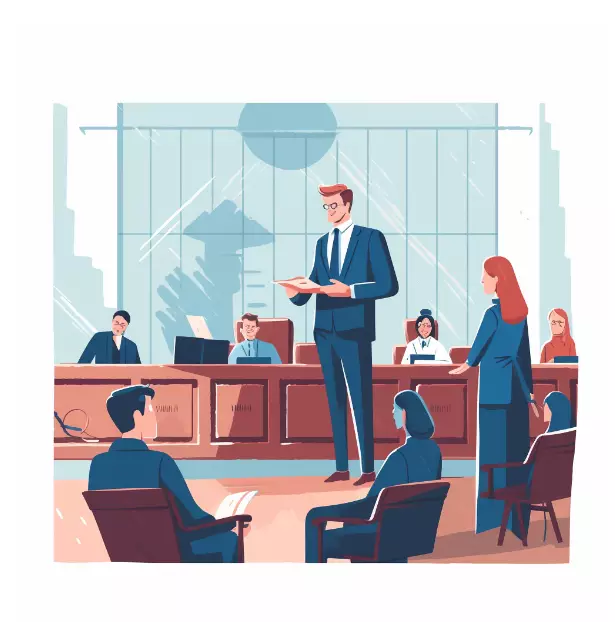- Home
- How Lawyers Manage Expert Witnesses in Civil Trials
How Lawyers Manage Expert Witnesses in Civil Trials

Handling expert witnesses is one of the toughest parts of being a lawyer in civil cases. Experts can make or break your case, so you gotta choose them carefully and work closely with them. I’ll walk through how smart lawyers deal with expert witnesses so you get killer testimony at trial.
Why Experts Matter So Much
Experts are crucial in civil cases, even more than criminal ones. Civil lawsuits are about disputed facts, and jurors often need an expert’s help making sense of technical issues they don’t understand. A persuasive expert can convince a jury when facts are complex.
They Know Stuff Regular Joes Don’t
Good experts have years of hands-on experience and bucketloads of knowledge normal folks lack. Medical malpractice cases need doctors to say whether the care met professional standards. Product liability lawsuits need engineers to explain if designs were defective. You get the idea. Experts have the inside scoop on their field.
They Break Down Complex Stuff
Smart experts teach juries using everyday language, instead of the jargon they usually spout. Like in patent cases with tricky technology, experts simplify it so jurors can compare the disputed product with the patent. Lawyers work with experts to create visuals and examples helping juries comprehend the technical stuff.
Finding the Best Experts
Hunting down good expert witnesses takes effort and creativity. Here’s how the pros do it:
Know the Right Fields to Look In
First figure out the specialized areas involved with the facts jurors must decide. An airplane crash case? You’ll want experts in mechanics, air traffic control, flight procedures, etc. Dig into the fields related to the lawsuit’s key disputes.
Look for the Cream of the Crop
Search professional directories, published research, conference speakers, referrals – whatever helps identify respected experts with rock-solid credentials and boatloads of experience. And laser focus on people at the very top of their niche.
Make Sure They Can Explain Things
The best credentials don’t matter if an expert is a crappy communicator. Meet with them and see if they convey concepts clearly without technical mumbo-jumbo. Check if they stay cool under tough questions. You want substance AND style.
Preparing Experts to Dazzle Juries
Once you’ve got some great experts lined up, the real work starts – getting them ready for the spotlight.
Teach Them Legal Procedures
Many experts aren’t used to court. Walk them through courtroom basics like dress code, testifying procedures, dealing with objections, and directly addressing the jury. Get them comfortable with the setting.
Rehearse, Rehearse, Rehearse
Run mock direct examinations to prep persuasive explanations of their methods and opinions. Do mock crosses to pinpoint and improve weaknesses. Refine their report language. Make them practice key points endlessly so the testimony sings. Leave no room for surprises at trial.
Showcase Their Smarts
When it’s showtime, start by qualifying them as experts and highlighting their unparalleled credentials. Then have them explain technical stuff plainly using visuals and examples. Remind jurors throughout this is coming from a certified genius.
Surviving Attacks During Cross-Examination
The other side will try to pick apart your experts. You gotta protect them.
Anticipate Ambush Approaches
Research their backgrounds and prior cases thoroughly. Look for inconsistencies, mistakes, exaggerations, anything they could get skewered on. Rehearse responses to defuse bombshells ahead of time.
More Practice Under Fire
Incorporate likely cross-examination angles into mock sessions after reviewing the opposition’s expert reports. Get your experts accustomed to fast-paced accusatory questioning.
Shield Them from Damage
At trial, limit experts’ time on the stand and object to improper questions. Instruct them to answer concisely and not volunteer extra information. The less ammo they provide, the better.
Working With Experts Day to Day
Managing experts takes diplomacy and care. Here are some tips:
Set Expectations Early
Be clear from the start about deadlines, work product needs, logistics, payment terms, and communication preferences. Make sure you’re aligned on roles and responsibilities.
Handle Disagreements Professionally
When unavoidable disputes come up over trial strategy, testimony, invoices, or whatever else, talk it out respectfully. See their perspective while explaining legal constraints. Compromise when possible. Don’t let it get ugly.
Pay Them Properly
Review billing carefully to verify it’s reasonable, and pay fully and promptly per contracts. Experts will lose motivation fast if payments are unfair or late. Keep the financial relationship smooth.
Tying It All Together
Mastering expert witness management takes time but pays off big at trial. Here are some best practices to remember:
– Start recruiting right away when a case starts – finding good ones always takes longer than you expect.
– Leave no stone unturned vetting their background – better to discover red flags early!
– Be crystal clear on expectations up front – ambiguity will breed confusion and problems later.
– Prepare relentlessly through exhaustive mock examinations – testimony skills take practice to hone.
– Limit excessive exposure during testimony – keep them concise and on message.
– Maintain a cooperative ongoing relationship – you want access when future cases come up in their field.
Bringing it all together, expert witnesses are invaluable for interpreting technical evidence and swaying juries in civil litigation. Managing them thoughtfully can determine who wins at trial. Use these tips to get killer expert testimony!
Bottom Line
Managing experts is tricky but worth the effort. Vet them thoroughly, prepare extensively, protect them from attacks, and maintain good relationships. Following best practices ensures your experts wow juries instead of bombing on the stand. Invest the time up front and you’ll get persuasive testimony that wins cases.
Author Bio
Wimgo
Other post in Categeory
© 2022 Wimgo, Inc. | All rights reserved.